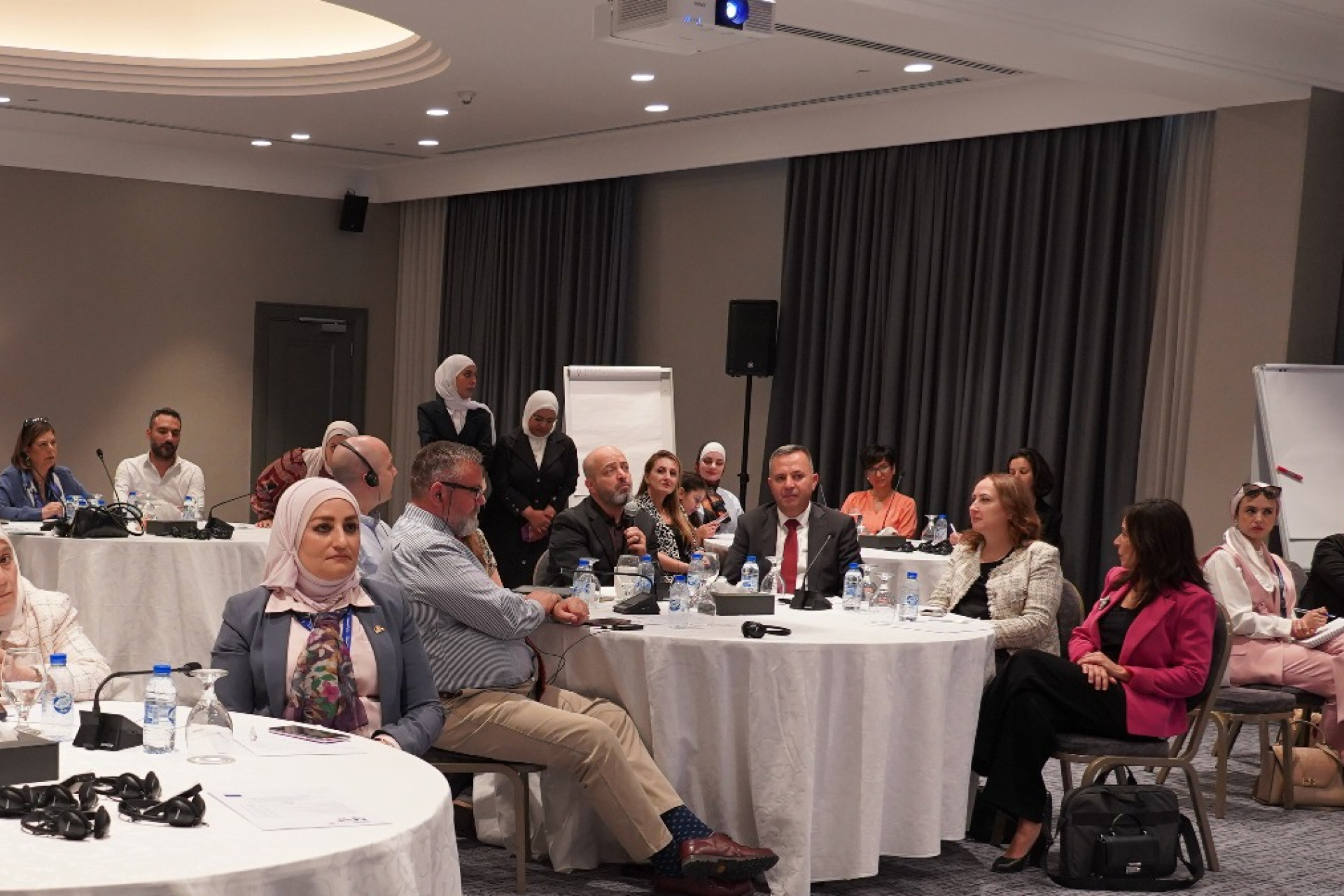Amman, May 12, 2025
Yesterday, SOS Children's Villages Jordan launched an assessment study of the "Safe Homes" model, in the presence of Her Excellency Engineer Maha Al Ali, Secretary General of the Jordanian National Commission for Women, Dr. Mohammed Mogdadi, Secretary General of the National Council for Family Affairs, Brigadier General Ziad Al-Nsour, Director of the Family and Juvenile Protection Department, and Mrs. Rana AlZoubi, National Director of the Association, along with representatives from the European Union, the Spanish Agency for International Development Cooperation, and the United Nations Population Fund in Jordan, as well as several directors and partners from national and international organizations.
The event was organized as part of the "Improving Access to Comprehensive GBV Services in Jordan" project, funded by the European Union and implemented by the Spanish Agency for International Development Cooperation (AECID) Jordan, in collaboration with the United Nations Population Fund (UNFPA) Jordan.
Held at the InterContinental Hotel in Amman, this event was part of a series of activities aimed at shedding light on the findings of the study and exchanging experiences. Dr. Amal AlAwadah, Director of the Women's Studies Center at the University of Jordan, gave a detailed presentation of the study’s findings during the workshop. The presentation covered the key challenges faced by the Safe Homes model, along with its strengths and distinguishing features.
The study highlighted that what sets the Safe Homes model apart is its provision of a safe and comprehensive shelter for women survivors of gender-based violence and their children, in line with international guidelines aimed at avoiding institutionalization. The project is based on an innovative community model that provides a supportive and inclusive environment focused on recovery and reintegration. The project also offers a comprehensive package of services, in collaboration with partners to ensure the provision of inclusive services, including education, healthcare, psychological, social, and legal support, as well as economic empowerment, which contributes to strengthening the abilities of mothers and children and enabling them to achieve their goals.
The study emphasized that what distinguishes this model is its reliance on a rights-based empowerment approach, which places respect for women’s rights and their humanity at the core of the protection system. This model also grants women the freedom of movement. Women survivors of violence are considered active partners in managing their lives, not just beneficiaries of services, as it provides them with the opportunity to take on daily responsibilities, including managing expenses, working, and purchasing necessities, which enhances their independence and contributes to their reintegration into society with confidence and respect.
During the interactive part of the workshop, participants were divided into working groups to discuss the four key themes of the study, with the goal of developing practical visions and proposals. Each group presented its findings in an open session for public discussion.
The session concluded with a Q&A and the presentation of final recommendations, which emphasized the importance of sustaining protection services, enhancing coordination between relevant stakeholders, and utilizing the findings of the study to develop related policies and practices.
